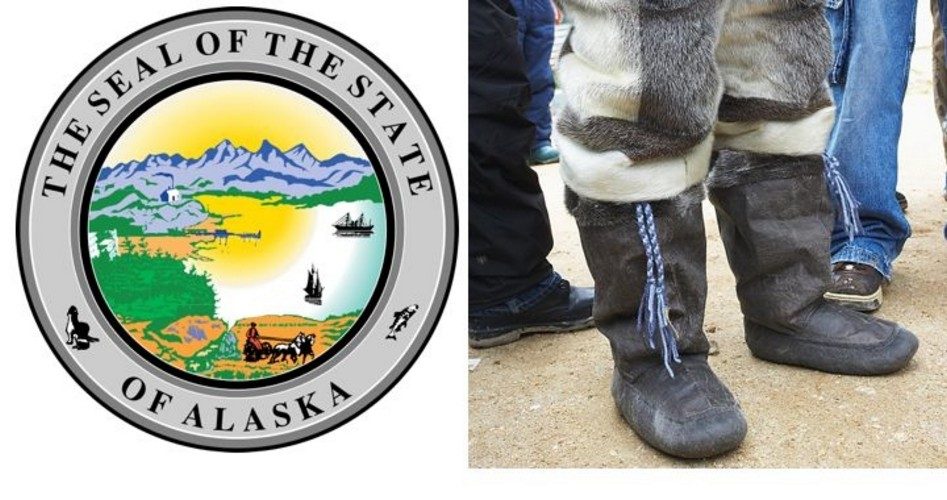
Although the Republican Party remains opposed to ObamaCare, the GOP-dominated Alaska legislature just passed a bill to bail out the state’s ObamaCare exchange, which is already beginning to show signs of a death spiral. The bill would use an existing tax on health insurance to further subsidize exchange coverage for Alaskans.
ObamaCare, of course, has been a flop in all 50 states, but Alaska is one of the hardest-hit. It had high healthcare costs even before the Affordable Care Act (ACA) came along because of its isolation, its large rural population, and other factors. “But state officials say Obamacare’s robust coverage requirements have exacerbated those problems,” wrote Politico. The ACA mandates a variety of “essential health benefits” that all health-insurance policies must include whether beneficiaries want them or not. In addition, it requires insurers to cover everyone who seeks insurance at roughly the same premiums regardless of pre-existing conditions. This has led, in Alaska as in all other states, to a huge influx of sick people into the individual insurance market without a concomitant inflow of healthy people to offset the costs of covering the sick — this despite the fact that almost 90 percent of Alaskans buying exchange coverage are eligible for premium-assistance subsidies.
As a result, insurance rates are spiking, a problem particularly pronounced in a low-population state such as Alaska. “Just a few especially sick patients have put a strain on insurers,” reported Politico. “In the individual market, nearly 500 enrollees with severe medical conditions cost Alaska insurers about $59 million in less than two years, according to state documents.” For one insurer, Premera Blue Cross Blue Shield, a mere 37 customers cost the company $11.2 million in the first half of 2015 alone. According to an analysis from consulting firm Avalere Health, the lowest-cost “silver” plan in Alaska cost $965 a month (not including subsidies), the highest rate in the nation. Premiums rose about 30 percent in 2015 and 40 percent in 2016, and their growth shows no signs of slowing down.
Under such conditions, insurers can’t turn a profit, and so they are giving up on the exchange, again following the nationwide trend. Beginning next year, Alaska will have just one provider on the exchange, making it the third state, after Alabama and Wyoming, to suffer that fate. (According to the Wall Street Journal, one-fifth of U.S. counties, mostly rural, are slated to have a single insurer on their exchanges next year.) What’s more, that lone provider, Premera, “couldn’t realistically raise rates high enough to cover customers’ medical bills,” state officials told Politico.
Enter the legislature, which wants to raid the state’s coffers to the tune of $55 million to help cover medical expenses for those individuals who are taking exchange insurers to the cleaners. The funds would come from an existing tax on insurance premiums, but since that money currently goes into the state’s general fund, noted Politico, “redirecting it to bolster Obamacare has spurred criticism from some lawmakers because of the state’s massive budget deficit.”
Republican-turned-independent Governor Bill Walker proposed the legislation and is therefore likely to sign it.
According to Politico, Republicans insist they are just doing what they have to do under the ACA despite their opposition to it:
State Sen. Cathy Giessel said Alaska would have had to set up its own insurer if no company sold plans on the exchange.
“Rather than leaving these folks out hanging, we had to do something,” Giessel said.
“Are we trying to maintain ACA? I think what we’re trying to do is live within the new reality that’s out there,” said state Rep. Lance Pruitt, a Republican who voted to create the insurance fund. “It really came down to: There’s not much really I think we could do because it’s the law of the land right now.”
Actually, legislators do have one other option: They could declare the unconstitutional ACA null and void within their state and refuse to permit its enforcement there. That, however, would require principles, guts, and a willingness to exercise tough love with constituents who want a speedy solution at someone else’s expense — traits that are all too rare among politicians.
One politician who did exercise some remarkable restraint in the face of tremendous pressure was Representative Lora Reinbold, the only Republican in the state House of Representatives to vote against the ObamaCare bailout. “My big issue,” she told Politico, “is that failed federal policies continue to take [a] tremendous toll on state budgets.” That may not be the big issue for constitutionalists, but at least it’s a start.



